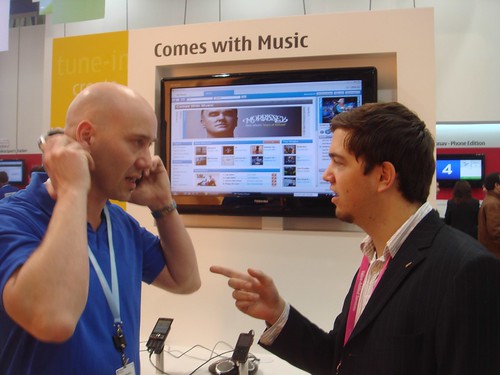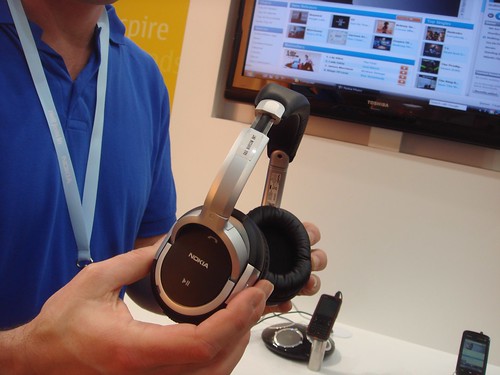Some times just a little win during the day can give you the power to make it through the rest of the day. Or, check out this guy. Just winning one point was enough to celebrate. Hilarious
[youtube=http://www.youtube.com/watch?v=BNjXgS0_CWE]
Some times just a little win during the day can give you the power to make it through the rest of the day. Or, check out this guy. Just winning one point was enough to celebrate. Hilarious
[youtube=http://www.youtube.com/watch?v=BNjXgS0_CWE]

I saw the movie Watchmen last night and i have to say that i really liked it. Here are some thought why.
The movie was….

Some things i didn’t like:
All in all it was a good movie. I give it an 8 out of 10. What did you think?
The book The Time-Traveler’s Wife is a great little book. I found it very easy to read and quite touching. While it contains a guy who time travels it’s not a science-fiction story but rather a love story between him and his wife.
I find that books that take a very extreme or unusual position do a great job of exposing everyday emotions. For example, Nelson Mandela‘s book Long Walk to Freedom talks about Mandela’s resolute quest for equality, and his long imprisonment inspired me to keep persevering in the things i care about. Similarly, this story about a time-traveler’s wife who grew up knowing a man bumbling through time and how they structured their life around each other makes me look at personal relationships and see how trivial my challenges are compared to theirs.
A great book and a quick read. I definitely recommend it.
There’s a movie coming out with the same title that stars Rachel McAdams and Eric Bana in Feb 2010. There are some photos of that here:
I also saw that the author Audrey Niffenegger just sold her second book, called “Her Fearful Symmetry” for $5 million buck. Unlike most authors who sell rights to their next novel off of a summary or description, she had finished the entire manuscript. The NY Times article about this states:
Ms. Niffenegger had completed a full manuscript. “She really has defied custom and written a spectacular second novel, which is one of the hardest things to do in this universe,” Ms. Graham (Editor of Scribner) said. “She’s not selling it essentially on the success of her first book.”
I’d be willing to give this next book a shot. It comes out in September. Anyone heard anything more about it?

A few weeks ago, I went to the Nokia booth at MWC last month and checked out their “comes with music” program. For those who are unfamiliar, here’s the deal:
When you buy a Nokia handset you get access to the Nokia Music Store which has deals with all 4 labels. For the 12 months after you purchase the phone you get unlimited downloads from the store. This isn’t a subscription, for one year the plan is for unlimited downloads for you to keep. They can live on both your PC and phone. Once a year is up, you keep all your downloads and you then have to purchase any additional tracks
Their new phones are all pretty slick and have smooth iPod functionality built in. One thing I especially liked was their Bluetooth headset which is also a sweet pair of headphones (see below)

This won’t be available in the states until layer this year and then only in the PC so it’ll be a while before we can fully check it out
One thing that always gets overlooked when peope talk about iPod’s dominance us the fact that it only dominated because it had BOTH the software on the computer and the hardware. Without iTunes, the iPod is nowhere. I was impressed to see the the Nokia software player I’d pretty nice. Not quite as simple as iTunes but still very slick. I haven’t seen any other handset makers making player software which will really hurt them if they try to compete.

It was interesting to see in a report yesterday that the iPhone, even though it represents only 1.2% of the total mobile phone market, represents 66% of total mobile web traffic. That is astounding. But it’s not that remarkable if you look at the differences between the iPhone and other phones. On other phones it is quite painful to use the browser and to install and use applications. Both of these are enjoyable on the iPhone. It’s much more of a web device with mobile capabilities than a phone that has a browser.
My new friend Volker listed this report in his blog and talked about how the other players are catching up fast. This is interesting, but until we get a better look at their app stores and new OS (Windows Mobile 6.5) i can’t accurately gauge if they will be a true competitor. My guess is that only blackberry, nokia and android will be close and that Windows Mobile will never get close to competing.

I heard a great podcast yesterday on NPR about the iconic Obama poster (seen above). The poster is done by a fascinating artist named Shepherd Fairey. It’s a little known fact that Fairey is also responsible for the Andre The Giant “OBEY” sketches that i remember from the 90’s. He really gets around.
In this case, Fairey took a photo he found on Google and then altered the neck, the eyes and the colors (and cropped out George Clooney) to make a poster than came to symbolize the campaign. Shepherd always claimed that he made the poster from an Associated Press photo and about a month ago, it was finally determined which photo he used and who the photographer was. It was a photo of Obama sitting at a press event in Darfur with George Clooney.

All this would be nice and peachy except that because the photo was an AP photo, the AP came to Fairey and threatened to sue if he didn’t dish out a percentage of revenue he made from the poster. Fairey acknowledged that he’s willing to pay the standard license fee and attribute the photo to the original photographer but he won’t be bullied into paying. So, instead he sued the AP in an attempt to discourage companies from punishing artists for creating art.
While his argument stands on fair use, to me the real issue is about people making derivative works. It’s the 21st century and lots of people take lots of images and transforming them into art. If each is penalized into paying a bounty for the original source we’re limiting and hurting society.
In this day and age, users are both consumers and creators of content. So many YouTube videos have copyrighted works in them. Last week there was a huge fiasco around Facebook’s Terms of Service when they claimed they owned all user uploaded material. Thankfully, they backed off. But the backlash from the users illustrates that ownership of property, attribution, and sharing is really important to the web.
If anything this just leads me more and more into believing in Creative Commons. It’s truly the only mechanism that let’s people properly manage their rights

I just finished Tom Friedman‘s Hot, Flat, and Crowded. It’s a good book that talks about 2 things: climate change and America’s decline. The first items is due to a number of trends: nations becoming more developed (flat) and pulling people out of poverty (crowded) which in turn requires more energy and increases production (hot). The second issue is that America also faces a crisis. A emotional, physical and international crisis. One quote in the book mentions:
It’s like jumping off an 80-story building. For 97 stories you feel as if you’re flying. That’s where the world is now.
America is losing its entrepreneurial drive and its status as the premier innovator in the world. Friendman then goes on to describe that America should solve it’s crisis by getting entrepreneurial about green living and green technology and if America solves its problem, this will in turn solve the world’s problems too.
The book also discusses global warming and oil and their interdependence. Global warming is here due to the amount of carbon in the atmosphere and while people dispute some of the implications of this, it is a fact that we’re putting more and more carbon into the atmosphere. There’s also an interesting chapter about the oil industry and how the oil-rich countries become increasingly more anti-american and anti-democratic as the price of oil increases. It also discusses the impact of supplying ultra-conservative Muslim nations with amazing amounts of cash.
It’s worth a read. Anyone else read it? If so, what are your thoughts?
Many of you know of my love of The Wire. You can imagine my excitement when i heard from BroncosRule about the NY Times running a series where a reporter sat down and watched Season 5 of The Wire with real-life gangsgters. Columbia University sociologist, Sudhir Venkatesh, who has a new book “Gang Leader for a Day,” sits down and watches “The Wire” with a group of New York-area gang personnel.
I couldn’t read 7-9 as i’m not yet done with Season 5. I love these articles.

I must admid it, i want a Kindle 2. I like the thought of having all my books in one nice little electronic device. I like the thought of downloading and saving and storing all the things i want to read. I’m intrigued.
This is why i was interested in this article in Forbes from Tim O’Reilly about formats. He talks about the importance of supporting an open format in the success of a product. For instance, the iTunes/iPod ecosystem is a popular platform and even though it has it’s own proprietary AAC format, it also supports the mp3 – an format that anyone can encode into. Supporting both allows the iPod to take advantage of both customers and the web at large.
O’Reilly argues that Amazon should do the same with the Kindle. The fact that it supports only it’s own eBook format will lead to its demise in the same way that Microsoft and AOL’s support for their own formats led to theirs. The O’Reilly camp is only supporting the open e-book platform and they have seen it have success:
But we can already see the momentum on the open e-book platform. Stanza, the epub-based e-book reader for the iPhone and other Web-capable phones. Lexcycle, the creator of Stanza, announced recently that its software has been downloaded more than 1.3 million times, and that more than 5 million e-books have been downloaded.
While The Kindle is the slickest of eReaders and the most popular with 500,000 – 700,000 sold, the game is far from over. The Sony Reader which also uses e-Ink has sold around 300,000. Should Amazon remain closed, it could very well miss out on a huge opportunity, or as O’Reilly says: “Open allows experimentation. Open encourages competition. Open wins. Amazon needs to get with the program”
Of course, another way to look at this is: AOL was about to build a $150 billion company by making it easy for people to get web information and only after the web matured did they fall. Perhaps The Kindle will be the first out of the gate and will take the early lead because of the streamlined format and operation of it’s service. Personlly, while i understand the need to be open, i’m still willing to check out The Kindle.
I spent the week at MWC in Barcelona this past week. I made my way to a bunch of booths and companies. It was a huge show.

Here are some thoughts:
 k this suite is a good metaphor for the company itself. Internet 1.0
k this suite is a good metaphor for the company itself. Internet 1.0